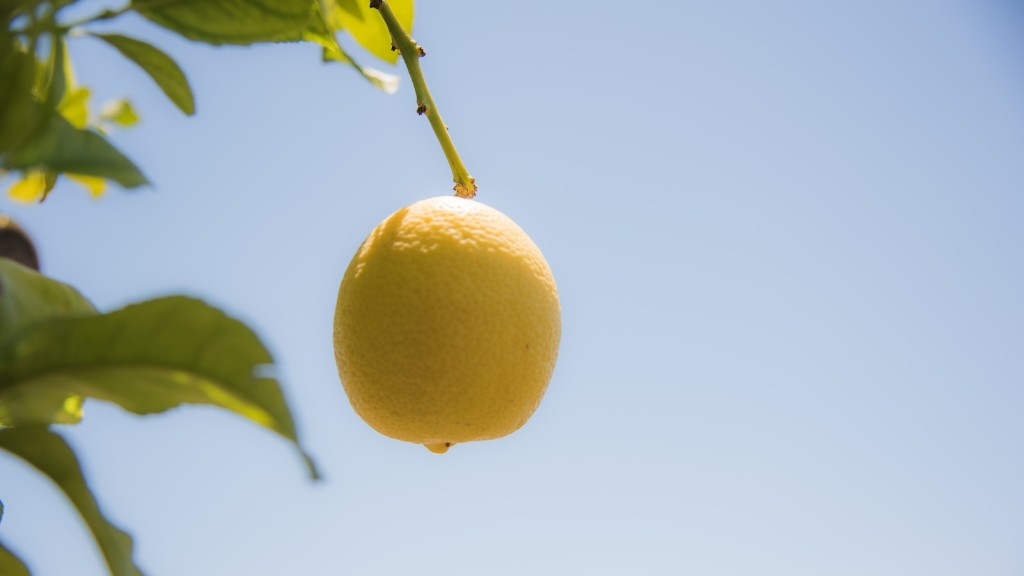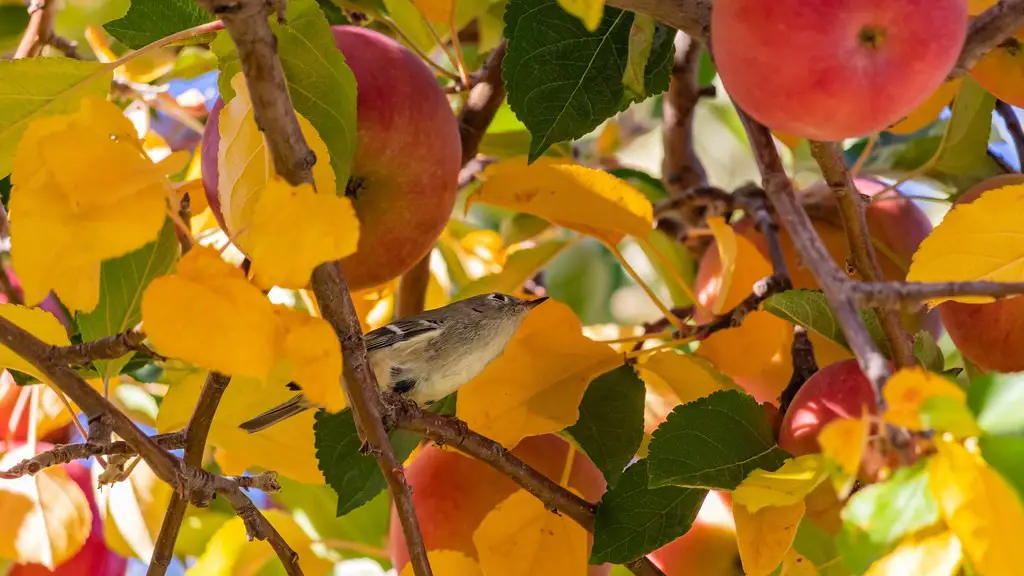Using cactus soil for lemon trees is an issue that’s recently gained traction within the gardening community. Controversy has arisen as to the suitability of using cactus soil in place of regular soil when planting lemon trees. As an expert in the field, I’ll share what I know regarding cactus soil and how it affects a lemon tree’s growth.
The primary question people have is ‘Can cactus soil be used for a lemon tree?’ Cactus soil can technically be used for a lemon tree, as it contains a number of key nutrients that are essential to a lemon tree’s development. However, the drainage rate of cactus soil is much faster than regular soil and so the nutrients may not be retained long enough for the lemon tree to utilise them.
If you are convinced that you want to use cactus soil for your lemon tree, the most important thing to do is to mix the cactus soil with regular soil. This way, you’re able to maintain a good balance of nutrients and the lemon tree will still receive a healthy amount of irrigation.
It is essential to choose the right type of cactus soil for your lemon tree. While most soils will have similar nutritional content, some contain certain elements that could be detrimental to the lemon tree. For instance, some contain an abundance of salt that could cause burns and lesions on the tree’s bark.
When planting a lemon tree in cactus soil, it is important to apply additional fertilisers. Lemon trees require a good amount of fertiliser in order to thrive, so it is necessary to use more than what is usually used when planting in regular soil.
An adequate amount of watering is also paramount to the healthy development of a lemon tree. Cactus soil that has not been mixed with regular soil has a faster drainage rate and so more frequent watering is necessary. It is also essential to keep an eye out for pests and diseases, as lemon trees planted in cactus soil are more prone to pest infestation and disease.
Finally, it is worth bearing in mind that cactus soil affects the acidity levels of the soil. The soil must be tested prior to planting the tree to ensure that the pH levels are correct. The soil must ideally be within a range of 6.0 and 6.6 (slightly acidic) for a lemon tree to properly develop.
Alternative soils
Cactus soil is commonly used for lemon trees as it contains essential nutrients for growth, however, many alternative soils exist that can be used in its place. Peat soil contains organic matter which helps to retain some of the water present in the soil. This type of soil is effective in keeping the pH levels of the soil at a suitable level for the lemon tree.
Moreover, compost soil is one of the most popular choices for lemon trees. Compost is made from plant matter, fungi and bacteria and this type of soil is beneficial for the lemon tree as it is easily adaptable.
In addition to these two soils, topsoil is another suitable substitute for cactus soil. Topsoil is made up of small particles of organic matter and mineral, and will often provide the pH balance that is suitable for growing a lemon tree.
Despite all of the alternative soils and type of soil, it is important to realise that the most crucial factor in the growth of a lemon tree is the adequate application of water and irrigation.
In conclusion, while cactus soil can be used for lemon trees, it is important to bear the above factors in mind. Before using cactus soil, regular soil should be added to the mix to ensure a good balance. Additionally, special care must be taken to ensure adequate irrigation and fertiliser application in order for the lemon tree to thrive.
Benefits of cactus soil
The use of cactus soil for a lemon tree can originate from both its availability and its benefits for the tree. In most cases, cactus soil already exists in a garden and so it is easier and more convenient to use the existing soil rather than buy or bring in soil from an outside source.
Furthermore, cactus soil is capable of storing a large amount of nitrogen, phosphorous and potassium, all elements that are essential to the growth of a lemon tree. This type of soil is also notable for its high porosity, enabling it to hold a high amount of air and moisture, both of which are necessary for healthy growth.
Less frequent watering is another benefit of cactus soil for lemon trees. As the soil has a higher absorption rate, it will save time and this will leads to better results in the long run. Morever, the soil empties out at a slower rate, allowing for water retention and helping the tree avoid stress caused by over-watering or under-watering.
In conclusion, cactus soil is a suitable eco-friendly alternative to regular soil. It has the capacity to hold a large amount of air and moisture and is also high in nitrogen, phosphorous and potassium. However, the soil’s drainage rate must be taken into consideration and additional watering and fertilising will be necessary in order to achieve good results.
Tips on using cactus soil
When using cactus soil for a lemon tree, it is important to make sure it is of good quality. The soil should be free from any toxic chemicals or pollutants, as well as insects or organisms. Additionally, the soil should not have salt-soluble elements, as this could result in the tree being burnt or becoming diseased due to its high salt content.
In addition to quality control, it is important to prepare the cactus soil before planting. The soil must first be sterilised or pasteurised in order to kill any living organisms that may be present, before mixing it with regular soil and soil amendments. The amended soil should be tested for the ideal pH level before planting the lemon tree in it.
When planting the lemon tree, a hole should be dug that is two to three times bigger than the size of the tree’s root ball. This will enable the roots to spread out and to absorb the nutrients more effectively. It also helps to keep the soil loose, allowing for better drainage of the cactus soil.
Additionally, the lemon tree should be watered on a regular basis during its first few weeks of planting. This will help to establish its roots and will also help it to become acclimatized to its new environment. The tree should be watered deeply and slowly, until the soil around it is moist and no water is visible on the surface.
Finally, it is essential to apply suitable fertilisers to the cactus soil. As the soil is acidic, lime or dolomite is a great choice as they help to raise the soil’s pH levels.
In conclusion, cactus soil can be beneficial for a lemon tree, however, adequate preparation, quality control and fertilising is essential prior to planting the tree. Additionally, the tree should be watered daily and kept clear of weeds during its first few weeks of planting.
Issues with cactus soil
Despite its benefits for the lemon tree, there are several issues to consider when using cactus soil. As cactus soil tends to have lower concentrations of nitrogen, phosphorous and potassium, extra fertilising is necessary in order for the lemon tree to obtain the nutrients it needs. Furthermore, the faster drainage rate of the soil can present issues for lemon trees as it results in the nutrients being leached away quickly.
Moreover, the soil needs to be tested for the ideal pH level prior to planting the tree. The pH of the soil must be kept between 6.0 and 6.6 in order to allow the roots to absorb the nutrients efficiently.
In addition, cactus soil can be an ideal breeding ground for pests, such as aphids and mealybugs, which can cause serious damage to the lemon trees. Pest control must be carried out on a regular basis to prevent any infestations.
Finally, it is worth noting that cactus soil will compact over time due to the existence of clay particles in it. Clay particles are heavier than regular soil particles and so the soil will gradually become harder, leading to decreased drainage in the soil and increased water retention.
In conclusion, when using cactus soil for lemon trees, it is essential to monitor the pH levels and to make sure that the tree is adequately fertilised and watered. Additionally, pest control should be undertaken and the soil should be tested for the presence of clay particles in order to ensure that the lemon tree will flourish.



